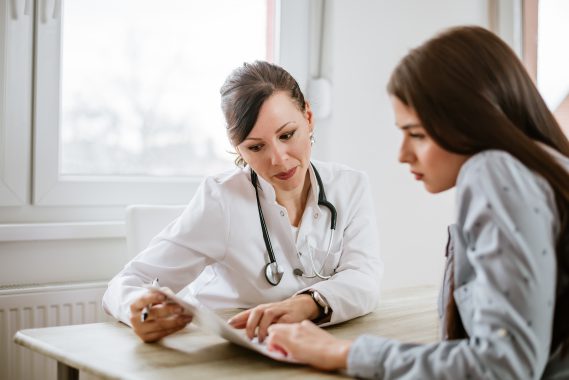Limit drugs prescribed to young people at risk of self-harm, GPs told

GPs should limit the quantity of medications they prescribe to young people at risk of self-harm, according to a new study.
Researchers from the University of Nottingham analysed over 40,000 poisoning cases between 1998 and 2014 in young people aged 10 to 24 years old and found that, in that time, the incidence of opioid and antidepressant poisonings increased fivefold and threefold respectively.
According to the study, published in the BJGP, poisonings are ‘the most common form of medically-attended self-harm among young people’, accounting for up to 90% of all cases of self-harm, with cutting accounting for around 10%.
The researchers found that the most common substances used in poisoning cases were paracetamol (39.8%), alcohol (32.7%), non-steroidal anti-inflammatory drugs (11.6%), antidepressants (10.2%), and opioids (7.6%).
The study said: ‘Between 1998 and 2014 there was a fivefold increase in opioid poisonings among 10–24-year-olds, as well as a three- to fourfold increase in antidepressant poisonings.’
In addition, researchers also found that aspirin, NSAID and paracetamol poisonings tripled in females over the 16-year period. Poisoning rates were highest in females aged 16 to 18 years and males aged 19 to 24 years.
This comes after a think tank report revealed that over one fifth of girls from across the UK said they had self-harmed at 14 years old.
The researchers added: ‘It is important that GPs raise awareness with families of the substances young people use to self-harm, especially the common use of over-the-counter medications.
‘Quantities of medication prescribed to young people at risk of self-harm and their families should be limited, particularly analgesics and antidepressants.’
RCGP chair Prof Helen Stokes-Lampard said: ‘Self-poisoning in young people is also linked to a much higher likelihood of suicide within 10 years so it is crucial that we tackle this with a strong society-wide approach which includes parents, schools, healthcare professionals and government working together to provide high quality mental health treatment and support to those at-risk.’
In July, the Government announced it was planning to trial a new four-week waiting time standard for children and young people referred for mental health treatment by GPs and other professionals.
The latest national figures found that more than 70,000 people under the age of 18 and nearly 2,000 children under 11 received at least one antidepressant prescription in 2017.
Pulse July survey
Take our July 2025 survey to potentially win £1.000 worth of tokens

Visit Pulse Reference for details on 140 symptoms, including easily searchable symptoms and categories, offering you a free platform to check symptoms and receive potential diagnoses during consultations.












